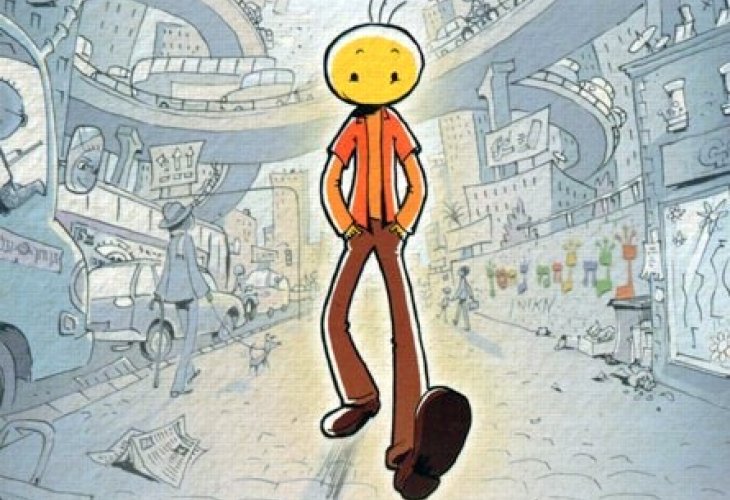Jewish Law
Why We Feel Disconnected: Understanding Emotional Numbness in the Modern World
Insights, personal stories, and tools for breaking through emotional walls and rebuilding authentic relationships

One of the greatest obstacles preventing us from feeling our truth and living it fully is emotional disconnection. We live in a generation overflowing with external stimuli, saturated with personal and collective pain — so much that we repress it without awareness or reflection.
Disconnection allows us to function outwardly, more or less. “No pain = no problems.” But perhaps the real statement should be:
“I feel, therefore I exist.” If I don’t feel my own pain, I haven’t freed myself from it — I’ve only pushed it one layer deeper.
When I refuse to hear the inner voices crying within me, I lose access to the place inside where I know I am good. What I try to silence continues to live within me. Emotionally and spiritually, disconnection may help survival, but it prevents us from reaching the deep, true, beautiful places inside — those buried under layers of confusion and negativity.
Growing Up with Emotional Numbness
In my personal journey, it was difficult to admit my own emotional numbness. It felt normal. This is how I grew up — this is the message I absorbed: Everything is fine. Don’t make noise. Don’t cause problems. Be a good boy.
Externally, I succeeded, and everything looked good. But eventually, the walls began to crack. I remember standing at Rabbi Nachman’s gravesite in Uman and suddenly feeling a disconnect — realizing that I lacked genuine emotional connection to others’ pain. It felt as if there was a wall separating me from other people’s suffering.
I labeled it: “I don’t have enough love for others.” And I flew home.
The Wake-Up Call
Back in Israel, I shared this with a friend who is a therapist.
“Love for others?” he asked. “And how are things at home? With your wife? With your children? Do you feel their pain?”
“Everything’s fine,” I replied.
But his question began to bother me: Everything is fine? Really?
I gathered courage and asked my wife: “What’s truly happening between us? Are we really okay?”
She hesitated. “Do you really want to know?” she asked.
“Actually… not so much. I feel alone. I feel like you don’t care. Like you don’t see me or the kids.”
It was shocking. How could this be?
We decided to begin couples therapy — and only there did I understand how unaware I truly was. My wife admitted she felt unheard, unseen, and unsupported.
How did I function with the illusion that everything was fine?
Disconnection. Repression. Avoiding emotions — mine and hers.
A survival mechanism from childhood that became self-destructive in adulthood.
The Secret of Azamra: You Are Good at the Core
My wife saw the good in me and longed for real closeness. She refused to settle for emotional crumbs.
This is the secret Rabbi Nachman teaches in Azamra: At your deepest truth, you are pure goodness.
Clouds may cover the sun, but the light never disappears. To live in that truth, you must fight through the clouds. When you agree to walk through the fog, the light reveals itself — it was always there.
Beginning the Journey Back to the Heart
From that moment of honest awareness, a beautiful journey began. We started speaking openly about our inner worlds, and about all the places where disconnection felt safer than closeness. This journey brought depth, growth, and clarity.
From my personal experience, every time I allow myself to acknowledge my pain instead of avoiding it, I reach a deeper place of goodness, love, and acceptance — toward myself, my wife, and my children.
Why Our Generation Is So Emotionally Disconnected
A wise Torah scholar once said: “To know what to repair, you must understand the condition of your generation.”
Many believe our emotional disconnection stems from:
collective trauma (the Holocaust, wars, antisemitism)
childhood emotional wounds
the superficiality and overstimulation of modern culture
generational spiritual decline
The specific cause doesn’t matter. What matters is recognizing that we live in a hard generation of material abundance on the outside, emotional numbness on the inside. Rabbi Nachman wrote his teachings 200 years ago, but the problem has worsened.
My mother told me that when her aunt died, my grandmother wore mourning clothes for years. Today, people sometimes forget the deceased hours after the funeral.
A great rabbi once said: “The problem with our generation is that people no longer cry.” If we don’t cry, we also don’t rejoice. The heart is closed.
A Generation Obsessed with External Success
In our time, society values external performance over emotional awareness. A person is measured by income, job title, appearance, possessions and status. But who asks about their inner world?
Their marriage? Their relationship with their children? Their emotional wellbeing?
On a business trip to Manhattan years ago, I met a wealthy media heir. He seemed to have everything. I asked him: “Are you happy?”
He stared at me and replied coldly: “We don’t ask questions like that here.”
This is our generation — thought-centered, heart-muted.
Rabbi Nachman's Mission: To Reawaken the Heart
Rabbi Nachman wants to save our hearts, to restore our emotional pulse and to help us fight the forces of superficiality, loneliness, disconnection, cultural coldness and inner walls that are numbing us, and separate us from eachother and ourselves.

